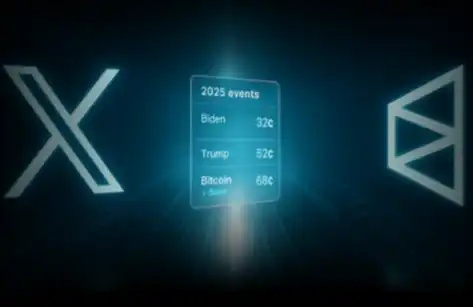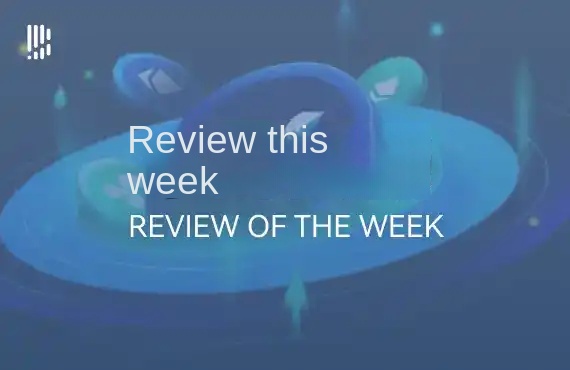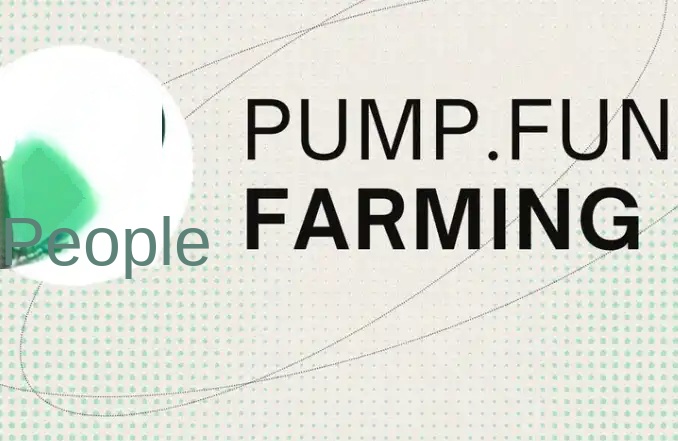Airdrops are not transferable. What is EigenLayer’s “regulatory excuse”?
Original title: "On Non-Transferability, Geofencing, and the Regulatory Risk Spectrum of Token Distributions"
Original author: Jake Chervinsky
Original translation: Ladyfinger, Blockbeats
Editor's note:
With the launch of the EIGEN token, this article takes a deep dive into regulatory compliance strategies in the cryptocurrency space, especially in light of the SEC's broad securitization view of digital assets. The article discusses conservative approaches such as non-transferability and geofencing, while challenging some more radical legal positions, providing valuable compliance insights for industry participants.
The launch of the EIGEN token has sparked a discussion about two specific design decisions:
- Tokens cannot be transferred;
- They cannot be claimed by US EigenLayer users
These decisions reflect a very conservative approach to regulatory compliance.
As we all know, the current leadership of the US Securities and Exchange Commission (SEC) considers every digital asset except Bitcoin to be a security. This means that every team considering launching a token must face the fact that the SEC will definitely consider the token to be subject to federal securities laws. Unfortunately, many lawyers' analysis stops at "if the regulator says it's illegal, you can't do it."
Lawyers generally don't put themselves at risk. They are trained to comply with regulators' requests and say "no" to things that are not allowed. In the traditional securities context, this is not complicated. Compliance lawyers can register securities with the SEC. For example, an initial public offering IPO or meeting all the requirements of a registration exemption, such as a Reg D private placement to complete the registration.
However, this approach simply does not work for cryptocurrencies. The SEC has consistently refused to provide a viable path for the registration of digital assets, and the exemption regulations are difficult to reconcile with the decentralized nature of public chains.
So what’s a risk-averse lawyer to do?
Why can’t EIGEN be transferred?
Make it non-transferable. Generally speaking, securities laws only apply to assets that can be bought and sold. That is, to protect investors who seek to profit from the buying and selling of assets whose value will rise or fall. In particular, the Howey test only applies to transactions and not to assets, and only when investors have a reasonable expectation of profit.
Therefore, making assets non-transferable creates an argument that securities laws do not apply. If token holders cannot trade, then they cannot profit. Unless there are other mechanisms, such as income rights or dividend rights, but these are rare in cryptocurrencies. Therefore, they do not need the protection of securities laws.
In theory, the SEC could still argue that non-transferable assets are securities, but the idea that non-transferable assets are still securities seems pretty irrational from a policy perspective, so even risk-averse lawyers generally feel relatively comfortable with issuing non-transferable tokens.
Why can’t EIGEN be withdrawn by US users?
What if a team doesn’t want to make the token non-transferable? Enter geofencing. Generally speaking, securities laws only apply to transactions that occur within the United States. This means that if a transaction occurs far enough outside the US borders, the SEC has no jurisdiction from the start.
While the US Securities and Exchange Commission (SEC) has some multinational jurisdiction, many lawyers believe that taking appropriate geofencing measures can make a strong argument that the SEC has no jurisdiction over token distributions. This is why many token issuances exclude US participants. From a policy perspective, this approach may seem counterintuitive or even absurd, as it effectively has the effect of preventing U.S. persons from receiving free tokens. However, for risk-averse lawyers, this approach does meet their needs.
Both strategies are on the conservative end of the spectrum of regulatory risk for token distributions. It is called a “spectrum” because in the absence of clear regulatory guidance, each team, with the advice of legal counsel, needs to decide how much risk they are willing to take. For the risk-averse, adopting both strategies at the same time, that is, distributing non-transferable tokens only to non-U.S. persons, is already a very prudent approach in the cryptocurrency industry. The SEC itself may even agree that no securities offering occurred within its jurisdiction.
However, there are equally valid points elsewhere on the risk spectrum, even if the SEC may disagree. As I often remind you, the SEC does not make the law, it merely expresses its own opinions and enforcement strategies. The SEC may be wrong in its judgment and may lose in court. Taking a less conservative approach to token distribution is not about satisfying the SEC, but about understanding the law correctly.
For example, at another point on the risk spectrum, free airdrops are not considered securities transactions, and therefore the airdropped tokens do not need to be non-transferable or geofenced. Given the SEC’s broad interpretation of the “investment of money” portion of the Howey test, the SEC may not agree with this view, and this issue is still being litigated in the courts. But for those teams who are less conservative, it is still a viable strategic option with the advice of legal counsel.
It is important to note that taking a more aggressive approach is not for the faint of heart. It means not only taking on more risk of an SEC investigation, but also facing the risk of an enforcement action, while also having a sincere belief in winning in court. In addition, this requires the team to have the courage to stick to it and the corresponding financial support.
However, this strategy reflects the current practice of the vast majority of the cryptocurrency industry, including some of the industry's most reputable companies, such as Coinbase, which is currently engaged in a legal battle with the SEC that may have a significant impact on the entire industry.
Non-transferability and geo-fencing are indeed useful tools for managing regulatory risks in token distribution. However, they are not the only options and may not be suitable for every team and token.
*I am not your lawyer, and nothing here should be considered or interpreted as legal advice. If you want to conduct a token distribution, you need to retain your own legal counsel to advise you. If you need help, I am happy to provide a recommendation.
This article provides general information only and does not constitute any investment advice or a recommendation or suggestion to buy, sell or hold any investment. It should not be used as a basis for evaluating the merits of an investment decision. The content of this article should not be used as a substitute for accounting, legal or tax advice or investment advice. Before making any investment decision, you should consult your own legal, business, tax and other relevant professional advisors.
Some of the information contained in this article was obtained from third parties, including companies in which funds managed by Variant Fund have invested. Although this information was obtained from sources believed to be reliable, Variant Fund has not independently verified this information. Variant Fund does not guarantee the continued accuracy of the information or its suitability for a particular situation.
The opinions expressed in this article represent the current views of the author only and do not necessarily reflect the views of Variant Fund or its clients, or of Variant Fund, its general partners, affiliates, advisors, or individuals associated with Variant Fund. These views may change without being updated.
Welcome to join the official BlockBeats community:
Telegram Subscription Group: https://t.me/theblockbeats
Telegram Discussion Group: https://t.me/BlockBeats_App
Official Twitter Account: https://twitter.com/BlockBeatsAsia
 Forum
Forum OPRR
OPRR Finance
Finance
 Specials
Specials
 On-chain Eco
On-chain Eco
 Entry
Entry
 Podcasts
Podcasts
 Activities
Activities

 Summarized by AI
Summarized by AI







